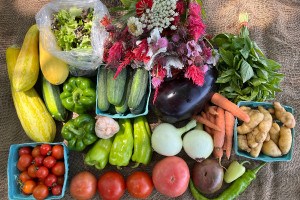More Proof: Antibacterial Soap Linked to Allergies
Still think you’re protecting your offspring by keeping that pump-bottle of antibacterial soap on the kitchen counter? A new study by researchers at the Johns Hopkins Children’s Center says you may be setting them up for more allergies instead. The researchers checked the urine of almost 900 kids ages 6 to 18 for antibacterials and preservatives found in everyday personal-care products like soap, toothpaste and mouthwash, as well as for the presence of certain antibodies that are elevated in those with allergies. “We saw a link between level of exposure, measured by the amount of antimicrobial agents in the urine, and allergy risk, indicated by circulating antibodies to specific allergens,” reports lead investigator Jessica Savage.
The findings fit squarely with the “hygiene hypothesis,” which claims that without exposure to common germs in childhood, we don’t have the opportunity to develop healthy immune systems. When that happens, those systems misfire and overreact to foods, pollens, and other harmless substances.
The researchers found that kids with the highest urine levels of the antibacterial agent triclosan also had the highest levels of food IgE antibodies—and thus the greatest risk of food allergies. Those with the highest levels of another antibacterial agent, propyl paraben, were twice as likely to have environmental allergies.
The message here: Don’t freak out if you find your kid licking the kitchen floor or sucking on the dog’s paws. The more germs, the better when it comes to building up immunity for the long haul.


